In most cases, truck drivers have two career paths to consider: become a company driver or be an owner operator. Each career path has its pros and cons – it just depends on what you’re looking for in a trucking career.
In this quick guide, we’ll go over company drivers, owner operators, and which option might be best for you and your situation.
What Is a Company Driver?
A company driver is an employee of a trucking company that drives a company truck. Company drivers are paid by the mile or the hour, and they typically receive benefits like any other employee.
Paid By the Mile vs. Paid By the Hour
So, is it better to be paid for every mile you drive, or does it make more sense to be paid for each hour you work? The short answer is it depends.
In general, shorter haul loads don’t offer enough miles to make per-mile payment worth your while. For example, if a load is only 97 miles each way, you’re only running about 200 miles per day. If you were paid by the mile, that’s less than $500 per week!
Most drivers aren’t going to work for only $500 per week. That’s why drivers who run local freight are typically paid by the hour. We call these “hourly runs.”
Guys and gals that are on the road doing 500-600 miles per day prefer a per-mile rate because it’s going to pay them more than an hourly rate.
You can really get in the weeds with the math here, but the gist is if you’re hired for a local job, it’s probably going to be an hourly position. And if you’re hired as an over-the-road driver, you’re probably going to be paid by the mile.
Sidenote: There’s a little bit of a push in the trucking industry to pay all drivers by the hour. Some believe paying drivers for every mile they run encourages speeding. This isn’t a massive push by any means – more of a gentle nudge if you will.
In our opinion, this line of thinking isn’t going anywhere because today’s technology is so advanced. For example, there are truck devices that don’t allow you to speed, even if you wanted to.
What Benefits Do Company Drivers Get?
Company drivers are employees, and as an employee, you receive valuable benefits like contributions towards your health insurance, workers’ compensation, and even access to a 401(k) retirement plan if your employer offers it.
Company drivers also have the advantage of reliability. In general, you know what your earnings are going to be (or can be), and you don’t face any unexpected expenses. Company drivers are not responsible for paying for their truck, truck maintenance, or fuel.
Here are some major things company drivers don’t have to worry about:
- Fuel costs going up and down
- No earnings if your truck breaks down (you get breakdown pay)
- No earnings if your loads are too spaced apart (you get layover pay)
- No earnings if you have to deadhead to get a load (you are paid by the mile or hour)
That’s all pretty reassuring to those who prefer the predictability and reliability of a steady job.
How Much Can You Make As a Company Driver?
Company drivers typically make around $75,000 annually. This is all dependent on your experience and the distance you’re willing to drive. Regional positions pay less, for example, and drivers with a lot of experience are paid more.
Average hourly rates can span from $15 to as high as $25 per hour. The biggest factors here are where you’re driving and any endorsements you have. For example, drivers up north are paid on the higher end, and drivers with HAZMAT and Tanker endorsements are paid more.
As a company driver, the more miles you run or the more hours you work, the more you’ll obviously make, but you are capped to a certain extent. It’s unlikely you’ll ever earn more than about 52 cents per mile driven, and you can only work so many hours in the week.
Additionally, some companies won’t want you to get into overtime, and some driving jobs only pay straight time no matter how many hours you work.
Typical company drivers can expect to make around $75,000 per year. Some of our very own Freight X company drivers are even earning upwards of $90,000 per year, so it really can depend.
Drivers with a lot of motivation who are out on the road more often tend to earn on the higher end of that range, while drivers who prefer to have more home time will be on the lower end. Needless to say, the pay is fantastic, especially since you don’t need any advanced degrees.
If you prefer predictability and don’t want to take on the risks of owning your own business, being a company driver is an excellent career path for you.
What Is an Owner Operator?
An owner operator is an independent business owner that teams up with a trucking company for back-office support. Owner operators lease or own their own trucks. If the owner operator is leasing the truck, they’re referred to a lease purchase owner operator.
Read more: 7 Ways to Avoid Getting Screwed Over on a Lease Purchase Agreement
If an owner operator has other drivers working under him or her, they’re referred to as a freight agent.
Read more: Why Becoming a Freight Agent Is the Best Way to Grow a Small Fleet
In any case, when you’re responsible for your own equipment, it means you take on the risk of any business owner. On the bright side, you are entirely independent and have the pride of being your own boss.
Are Owner Operators Considered Employees?
Owner operators are not considered employees. In most cases, owner operators are 1099 independent contractors.
Since owner ops aren’t employees, it should be said that taxes are not automatically taken out of their earnings, so please, please, please! save a portion of your income for tax time. You do NOT want to be like many owner operators who owe the IRS and don’t have the ability to pay them.
What Do Owner Operators Have to Pay For?
Owner operators are running their own businesses, and while they make a lot more money on the freight they haul, they also have a lot more expenses. Some expenses you can plan for, while others can come out of the blue.
The main expenses of an owner operator include:
- Truck maintenance costs
- Truck breakdowns
- Health insurance
- Liability insurance
- Other Unforeseen business expenses
Sidenote: Most trucking companies don’t supply health insurance for owner operators. There may be a few exceptions, but in general, that’s the standard.
While all of these expenses can definitely add up, there’s a reason why truckers decide to become owner operators, and that’s the income!
How Much Can You Make As an Owner Operator?
Owner operators have the potential to make significantly more money than a company driver. Owner operators typically make between 70-80% of the load.
Here at Freight X, we pay 82% of the load.
You can read more about that here: 5 Key Reasons Truck Drivers Switch Trucking Companies
As an owner operator, you have the power to choose your own destiny. An owner operator’s annual earnings can range from $78,000-$156,000.
If you’re out on the road diligently, you’ll be on the higher end of the range, and if you continually turn down loads, you’ll be on the lower end.
Don’t forget that owner operators are responsible for their own business expenses, but on the bright side, expenses are tax-deductible. You just have to keep track of them!
What Do Trucking Companies Offer Owner Operators?
You’re making about 82% of the load, so why are you giving up 18% to the trucking company you’re running under?
That can depend on the trucking company, so you really want to do your homework here. You want to be sure you’re partnering with a company that is supporting your growth and is offering top-of-the-line trucking solutions. Don’t give up that percentage to just anyone!
Here at Freight X, we offer best-in-class software, great customer relationships, a shop with incredibly skilled mechanics, and so much more. In fact, here’s a quick sampling of the benefits we provide to owner operators:
- Pilot/Flying J agreement – fantastic fuel discount!
- Experienced in-house mechanics that are paid by the hour, not commission
- Best-in-class tech – Dossier, McLeod, and Transflo
- More opportunities – drop and hook, trailer pools, customers
- Free subscription to DAT and Truckstop
- Great dispatch and load planning support from staff with decades of trucking experience
- Fueling location optimization to save you money on fuel expenses
- We file your IFTA
- ELD provided and monitored
These are just some of the highlights of what we offer to owner operators, but as you can see, that’s a ton of value. We’re able to offer all of this because of the volume we do.
However, we still maintain that small, family-owned company feel. When you call us, you’ll be greeted by your name, not a number. It’s truly the best of both worlds!
How Much Does an Owner Operator Truck Driver Make After Expenses?
Expenses are pretty unpredictable – as are many aspects of trucking! However, many trucking companies (including Freight X) assist owner operators by offering optional maintenance accounts.
You can request to automatically put in part of your earnings into the maintenance account until it reaches an amount you’re comfortable with. That provides you some insurance, so to speak, if you run into any major maintenance or breakdown issues.
Once your maintenance account has a good amount of padding in it, you don’t have to worry about unforeseen expenses coming out of your check.
Your expenses and income are going to range greatly, but we know you probably want to see some kind of example, so we came up with one.
Assuming you run 100,000 in a year, you should plan for about $74,500 in annual expenses. Also assuming you get $2 per mile, which is very reasonable, you would make $200,000 that year.
In sum, an owner operator who runs 100,000 miles annually can expect to make about $125,500 after expenses. And again, expenses are tax-deductible.
Here’s an example of what expenses look like if you run 100,000 in a year:
- $24,000: Fuel (at Freight X, you get a fuel card with a fuel discount)
- $16,500: Food and drink while on the road – this is called “per diem” and is major for your taxes – you can deduct $66 per day in 2021)
- $15,000: Truck maintenance
- $13,000: Insurance
- $5,000: Tires
- $1,000: General administrative expenses (accounting, for example)
Fuel is going to be your largest expense, but it’s not as bad as it sounds since it’s factored into the rate of the load. Owner operators at Freight X regularly bring home between $2,000-$3,000 per week, and that’s after fuel expenses.
Owner Operator vs. Company Driver
One option isn’t inherently better than the other – it just depends on your personality and which option fits your needs the best at this time.
You’re probably better suited to be a company driver (for now) if you agree with the majority of these statements:
- I’m relatively new to truck driving.
- I’m not financially prepared to be on the hook for tractor repairs or maintenance costs.
- I like predictability.
- I don’t generally like to take on risk if I can help it.
- I’ve never really had the desire to own my own business.
On the other hand, you might be better suited to become an owner operator if you agree with the majority of these statements:
- I’ve been driving trucks for several years (or more).
- I’m financially prepared to handle tractor repairs or maintenance costs.
- I don’t mind taking on risk when there’s a potential for upside.
- I’ve always wanted to own my own truck.
- I’ve always wanted to start my own business.
If you want to be an owner operator but you’re not financially prepared for unexpected costs and you don’t know how to own your own truck, consider becoming a lease purchase owner operator.
Read this first, though: 7 Ways to Avoid Getting Screwed Over on a Lease Purchase Agreement
Conclusion
If you have any questions about becoming a company driver or owner operator here at Freight X, be sure to visit our Become a Driver page. If you think being an Owner Operator with us is right for you, check out our Owner Operators page.
You can fill out the form there to get in touch with us, or just give us a call at 352-629-2042!
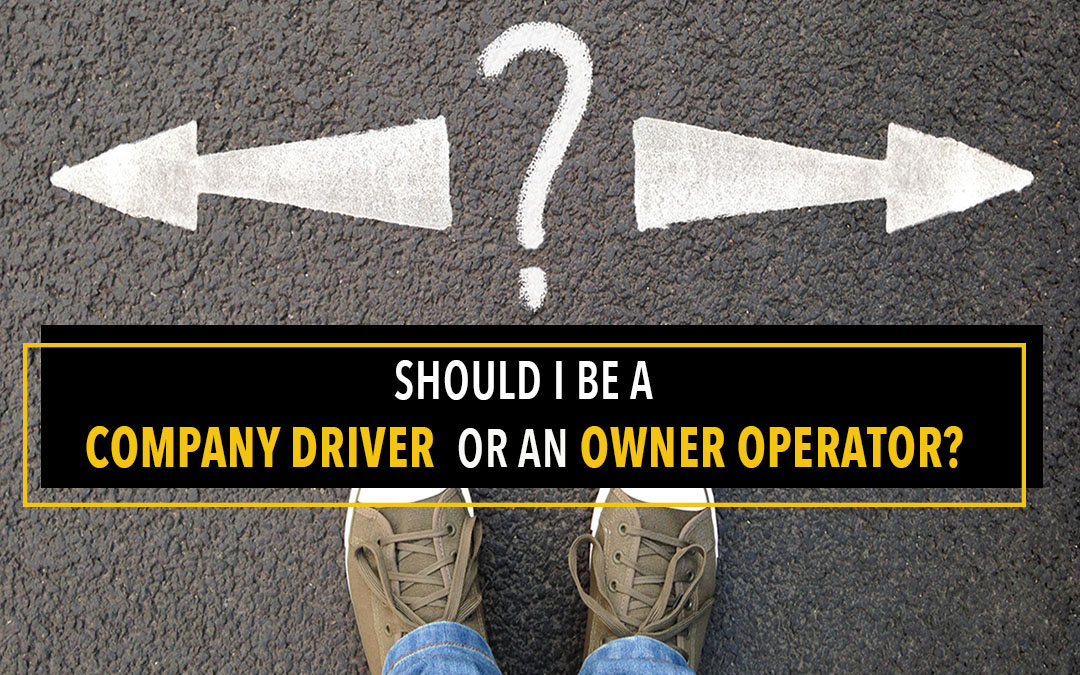
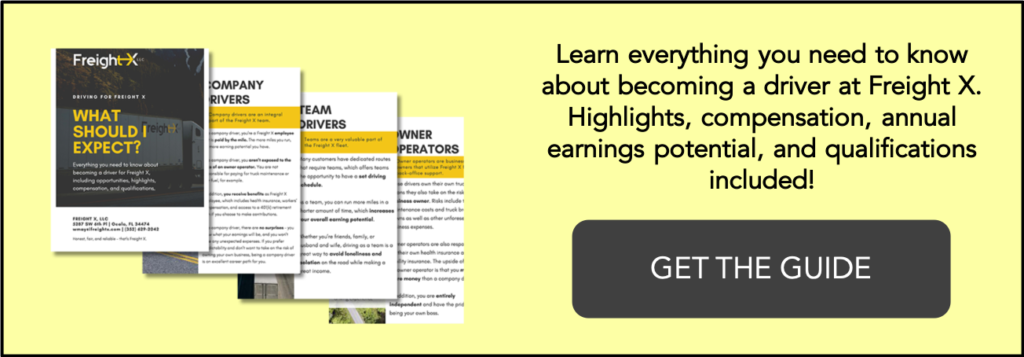
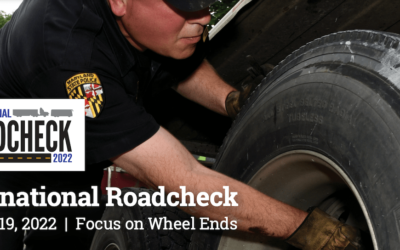
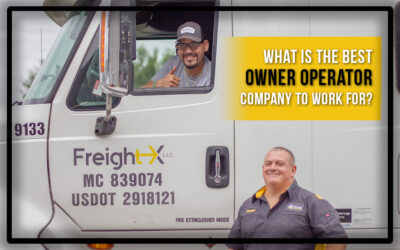
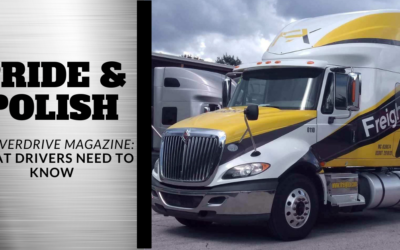
I’m ready to own my own big rig and start making some real money. I understand about the maintenance expense account and I know that it’s a great necessity in this business. I was thinking that I could pay my taxes quarterly to keep those parasites off of me.
Congratulations on making the decision to command your future. Paying taxes quarterly is a good idea so you are not hit with a large tax bill at the end of the year.
[…] How Much Can You Make As an Owner Operator? Owner operators have the potential to make significantly more money than a company driver. While company drivers make between 38-52 cents per mile, owner operators typically make about 70% of the load, which would be $1.75 on a load paying $2.50, for example. via […]
[…] How Much Can You Make As an Owner Operator? Owner operators have the potential to make significantly more money than a company driver. While company drivers make between 38-52 cents per mile, owner operators typically make about 70% of the load, which would be $1.75 on a load paying $2.50, for example. via […]
[…] How Much Can You Make As an Owner Operator? Owner operators have the potential to make significantly more money than a company driver. While company drivers make between 38-52 cents per mile, owner operators typically make about 70% of the load, which would be $1.75 on a load paying $2.50, for example. via […]
[…] How Much Can You Make As an Owner Operator? Owner operators have the potential to make significantly more money than a company driver. While company drivers make between 38-52 cents per mile, owner operators typically make about 70% of the load, which would be $1.75 on a load paying $2.50, for example. via […]
[…] While company drivers make between 38-52 cents per mile, owner operators typically make about 70% of the load, which would be $1.75 on a load paying $2.50, for example. via […]
[…] Owner operators have the potential to make significantly more money than a company driver. While company drivers make between 38-52 cents per mile, owner operators typically make about 70% of the load, which would be $1.75 on a load paying $2.50, for example. via […]
[…] How Much Can You Make As an Owner Operator? Owner operators have the potential to make significantly more money than a company driver. While company drivers make between 38-52 cents per mile, owner operators typically make about 70% of the load, which would be $1.75 on a load paying $2.50, for example. via […]
[…] How Much Can You Make As an Owner Operator? Owner operators have the potential to make significantly more money than a company driver. While company drivers make between 38-52 cents per mile, owner operators typically make about 70% of the load, which would be $1.75 on a load paying $2.50, for example. via […]
[…] How Much Can You Make As an Owner Operator? Owner operators have the potential to make significantly more money than a company driver. While company drivers make between 38-52 cents per mile, owner operators typically make about 70% of the load, which would be $1.75 on a load paying $2.50, for example. via […]
[…] How Much Can You Make As an Owner Operator? Owner operators have the potential to make significantly more money than a company driver. While company drivers make between 38-52 cents per mile, owner operators typically make about 70% of the load, which would be $1.75 on a load paying $2.50, for example. via […]
[…] How Much Can You Make As an Owner Operator? Owner operators have the potential to make significantly more money than a company driver. While company drivers make between 38-52 cents per mile, owner operators typically make about 70% of the load, which would be $1.75 on a load paying $2.50, for example. via […]